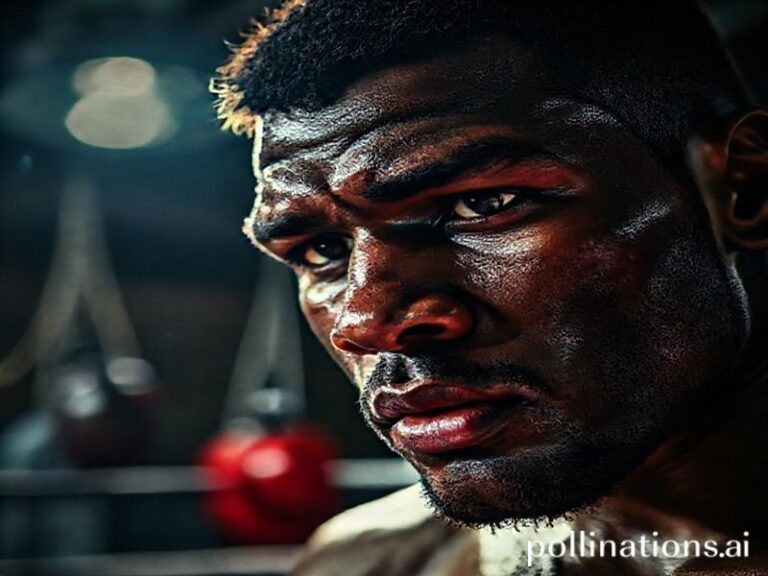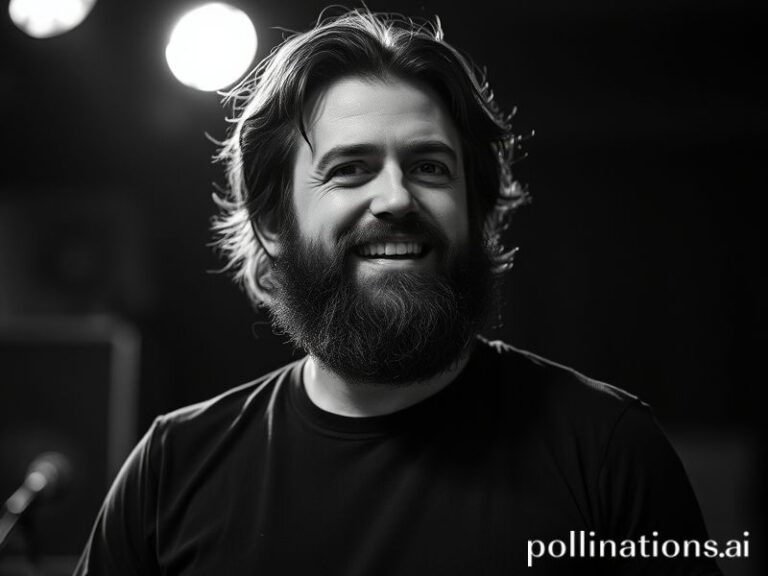Global Pop’s Accidental Diplomat: How Jessie J Became the Soundtrack to Our Slow-Motion Apocalypse
Jessie J and the Global Pop Machine: One Woman’s Quest to Remind Us We’re All Just Idiots with Headphones
By Dave’s Locker International Bureau
PARIS—If you squint past the Eiffel Tower’s nightly seizure-inducing strobe show, you’ll notice a faint, familiar wail drifting from the cafés along Rue de la Paix: “I’m feeeeelin’ sexy and freeeeee.” Yes, Jessie J is still doing the rounds, eight years after “Domino” soundtracked every second Zara fitting room from Lisbon to Lagos. The planet keeps teetering toward ecological collapse, but somewhere an algorithm has decided the cure is a British belter reminding shoppers that love is blind and so is consumer credit. Vive la résilience.
Jessie J—born Jessica Ellen Cornish in Chadwell Heath, a London suburb whose name sounds like a medieval torture device—has become a minor but persistent weather system in the planetary pop climate. On paper she’s a mid-tier pop star who peaked in 2011, when the BRIT School crowbarred her into the same marketing deck as Adele and Leona Lewis. In practice, she’s a walking experiment in how far vocal pyrotechnics can carry you when geopolitics, TikTok, and a global pandemic all insist on rewriting the script every fiscal quarter.
Take China, where Jessie J improbably won *Singer 2018*, a state-TV talent juggernaut watched by roughly 1.2 billion citizens and whatever stray pandas still have electricity. The victory was hailed in Western media as proof of music’s universal language; in Beijing, executives quietly noted that a foreigner belting Mandarin ballads offered perfect soft-power cover while the trade war escalated. Jessie, for her part, gamely thanked her “Chinese heart family” on Weibo, thereby achieving the rare distinction of being retweeted by both Little Monsters and the Communist Youth League. Somewhere in a Davos cocktail lounge, a consultant added “cross-cultural brand elasticity” to a PowerPoint and billed four figures.
Meanwhile, in Latin America, “Price Tag” has become the ironic anthem for crypto-bros who lost their shirts in the FTX collapse. Montevideo nightclubs now drop the track right after the DJ shouts “This one’s for the liquidity!”—because nothing undercuts a smash-the-capitalist-system bop like blockchain bros humming along ironically while scanning QR codes for emergency stablecoin transfers. The song’s core thesis (“It’s not about the money, money, money”) remains adorable in nations where inflation prints new denominations before breakfast.
Europe treats Jessie like a guilty digestive biscuit: nutritionally empty, yet weirdly comforting. In Berlin she plays pride parades sponsored by a Swedish fintech whose logo is a pride flag rendered in binary. In Warsaw, Gen-Z queers blast “Laserlight” while protesting judicial rollbacks, proving authoritarian regimes can ban abortion but not an EDM drop. The European Commission briefly considered adopting “Nobody’s Perfect” as its official Brexit renegotiation soundtrack, then remembered the lyrics hit too close to home.
Back in the United States, Jessie J is what industry types call a “catalog sleeper.” Translation: her songs stream just enough to keep the lights on at Universal, but not enough for anyone stateside to learn she once replaced an ill Aretha Franklin at the Grammy rehearsals. Americans prefer their British imports either knighted or cancelled; Jessie occupies the purgatorial middle ground of “Oh, her? Yeah, she’s… fine.” Still, she pops up at L.A. charity galas, warbling for wildfire relief while guests in Calabasas facemasks bid on NFTs of their own tweets. Somewhere, Smokey Bear weeps into his influencer contract.
Africa, finally, offers the most honest appraisal. Nairobi Uber drivers keep “Domino” queued between Burna Boy and Ayra Starr because, as one driver told me between potholes, “It makes traffic feel shorter, and traffic here is existential.” That’s the global takeaway: Jessie J’s greatest utility may be as a sonic airbag against the daily collision of late-stage capitalism, rising sea levels, and whatever Elon Musk tweeted at 3 a.m.
In conclusion, Jessie J is neither savior nor villain, merely a resilient little pop antibody circulating in the world’s bloodstream—occasionally mutating, mostly harmless, forever just loud enough to drown out the sound of glaciers cracking. If civilization collapses tomorrow, archaeologists will find her greatest hits etched into a server farm beneath the Hague, right next to the seed vault and a half-eaten stroopwafel. They’ll shrug, press play, and admit the beat still slaps. We may not survive, but at least we’ll go out sexy and free.







